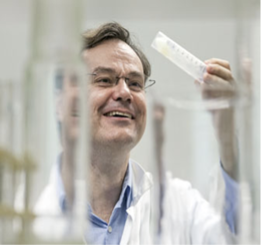Why it is important?
Brown stock washing is the first treatment of pulp after the pulping. If this step is efficient it save cost and environmental impact for the following oxygen delignification and bleaching. In this project we will consider that washing is a counter-current process, thus, there is an alkali/ionic strength profile along the washing process affecting it. Furthermore, we will investigate the washing of different fibres aimed at different types of products. We will have two main WPs in the project and one WP for industrial measurements. The first will be focused on mass transport of larger organic molecules out from the fibre wall at different pH and temperatures for three different pulp qualities (high yield, bleach qualities, textile pulp). The second WP will focus on how the fibre quality is influenced by mechanical forces applied during washing at different pH and temperatures, also here different pulp qualities will be investigated.
Methods we use:
The washing operation after cooking and before oxygen delignification (1st stage washing in the fibreline) will be studied and be the focus on. The leaching phenomenon of lignin from the fibre wall and to understand the fundamentals behind mass transport of lignin under different conditions will be investigated with an equipment called Perti tester provided by Valmet AB (Illustration). Analytical work will rely on UV-VIS spectrometer (UV lignin absorbance), NMR (Structural characterization), and SEC (Molecular weight distribution of lignin).
Expected results and scientific impact:
The project contributes to strengthened Swedish competitiveness through its expected research results and new fundamental knowledge for the development of an efficient pulp washing process and thus through an increased pace of innovation in the transition to a circular economy. The project contributes to the industry’s innovation ability through the training of people who can implement process-oriented research from an industrial conversion perspective.
















